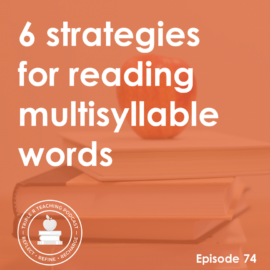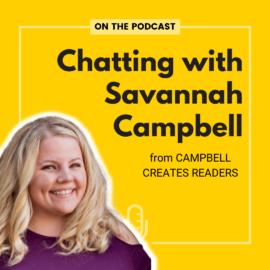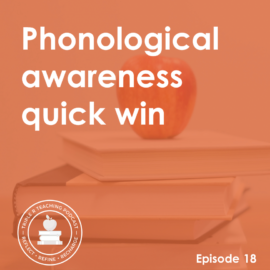
TRT Podcast#66: Reaction to Fountas & Pinnell #10 – Do Fountas and Pinnell REALLY want teachers to educate themselves?
Fountas and Pinnell claim that administrators need to prioritize ongoing professional learning for teachers. But what happens when these teachers find out that what they’re learning contradicts Fountas and Pinnell’s approach?
Listen to the episode here
Full episode transcript
Hello, Anna Geiger here from The Measured Mom, and you are listening to Episode 66 of the Triple R Teaching podcast. Today is the tenth and final reaction episode in which I respond to Fountas and Pinnell.
Their final question that they responded to was this one, "Much has been said about the role of teachers in teaching children how to read, but what role do school administrators, coaches, and other teacher leaders play?"
This may be the longest response that Fountas & Pinnell shared in their series. I'm going to play just a short paragraph:
"There are various roles throughout the school that can support the growth of teacher expertise: principals who aim to build the capacity for shared leadership in their schools, literacy coaches who value the expertise of teachers and support their leadership development, and teachers who want to grow professionally and contribute to their team by engaging in acts of leadership to support all their colleagues."
So I don't think there's anything in the response that Fountas & Pinnell shared to disagree with. They acknowledge that school administrators and teachers need to work together, they need to educate themselves, they must all take responsibility for the success of all the students, and everyone must learn more every year.
I just find it very ironic that Fountas and Pinnell are promoting this culture of learning among the staff and the administration when that does not seem to be the approach they have personally taken.
They talk a good game about how their resources are research based, but when you really look at the science of reading you see that they are stuck. They are stuck because they believe that three-cueing is what students need to make sense of text.
We've talked many times about how that is not true. When we understand that three-cueing is a problem, then we can make the conclusion that students, at least early readers, should not be using leveled books to "read" because they can't solve the words except by using three-cueing.
So we make the conclusion that students should be learning to read using decodable books, at least in those very early stages, and we understand the foundational role that phonics has to play.
Fountas and Pinnell seem to be closing their eyes and ears to the current research. They talk about having everyone educate themselves and support each other, but I'm not sure they're living it out.
I've heard from many teachers who want very much to move forward in structured literacy and the science of reading, but they're in a Fountas and Pinnell school. They're in a school where they're required to do the Fountas and Pinnell brand of guided reading, and they're struggling because they see that these approaches are not working and should not be used when teaching beginning readers.
Now am I saying that everything that Fountas and Pinnell share is bad or wrong? No, I definitely do not say that nor do I believe that.
However, when you look at their foundational beliefs, which really are based on the idea of three-cueing, you have to question any conclusions that they draw. So a wise, educated teacher may be able to find some gems of wisdom from Fountas and Pinnell, but that's really not where I would choose to go, not after I've learned so much about the science of reading, and now that I see that they really aren't interested in that conversation.
If you're in a school where you would like to help your staff understand more about the science reading in a nonjudgmental way, I have a presentation that I am able to give online. It is called "Embracing the Science of Reading After Twenty Years in Balanced Literacy."
If you think that's a presentation that your staff would be open to, I would definitely invite your administrator as well, and we could possibly set up an hour where I could share this with your staff live. The challenge, of course, is always finding a time that works for everyone, so you may certainly reach out to me at hello@themeasuredmom.com.
If you have a morning that your staff has some development time, it's possible that we could work this out depending on our time zones. I can't do this when my kids are home, it just doesn't work. I have mornings available this year, and in the future I'll have more flexibility when all six kids are in school all day.
Feel free to reach out if we can set something up, we will. I'd love to help you help your staff understand the science of reading.
Thanks so much for listening to this ten part series, and I look forward to sharing more podcast episodes with you soon. You can check out the show notes for this episode at themeasuredmom.com/episode66.
Sign up to receive email updates
Enter your name and email address below and I'll send you periodic updates about the podcast.
Related resources
- Fountas & Pinnell’s series: Just to Clarify
- Emily Hanford’s response: Influential authors Fountas and Pinnell stand behind disproven reading theory
- Mark Seidenberg’s response: Clarity about Fountas and Pinnell
Check out the full podcast series:
- Reaction #1: You CAN have conversations about the science of reading
- Reaction #2: Fountas & Pinnell are wrong about three-cueing
- Reaction #3: Yes, you ARE teaching guessing
- Reaction #4: Here are the problems with guided reading
- Reaction #5: Here’s why you SHOULD use decodable books
- Reaction #6: You can teach phonics AND language comprehension
- Reaction #7: Do Fountas & Pinnell promote balanced literacy?
- Reaction #8: Is structured literacy responsive?
- Reaction #9: Do teachers know best?
- Reaction #10: Do Fountas & Pinnell REALLY want teachers to educate themselves?







Sara Foster
I cannot tell you what this podcast means to me as the mother of a three year old who is always seeking to do the right thing by her. Literacy is a fight for LIFE. That’s not hyperbole
Anna Geiger
I agree, Sara! Thanks so much for listening!